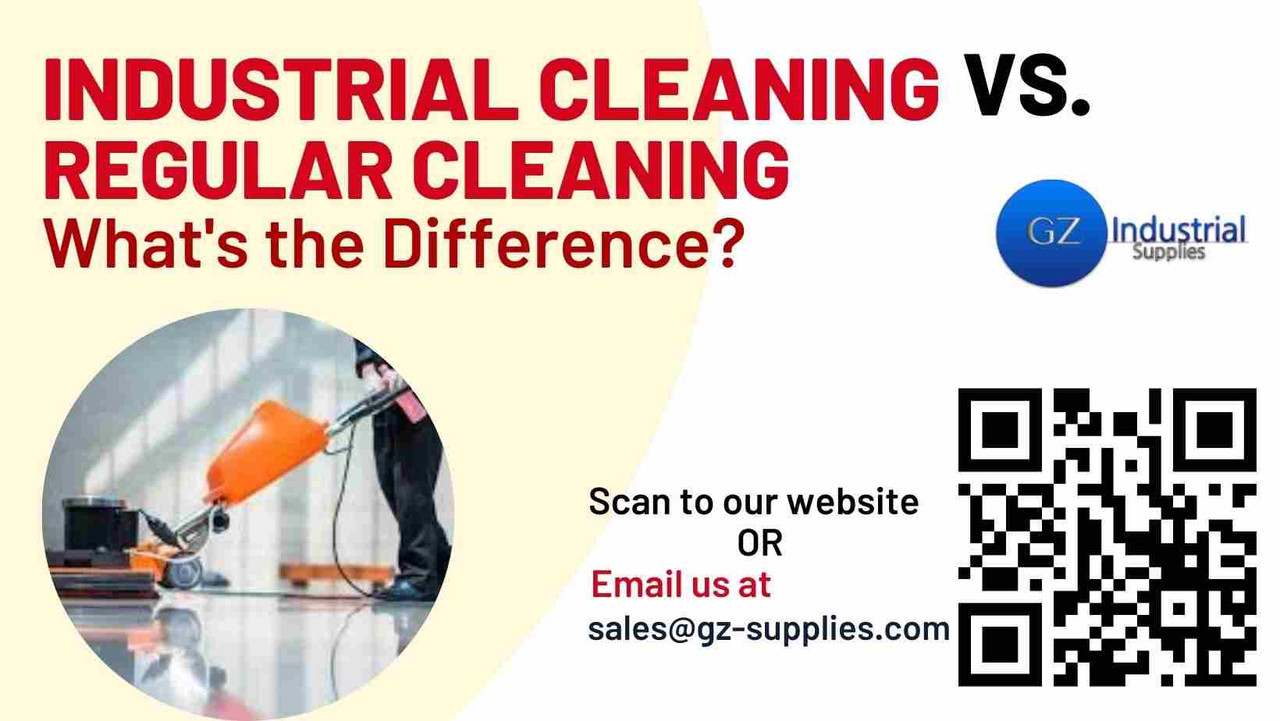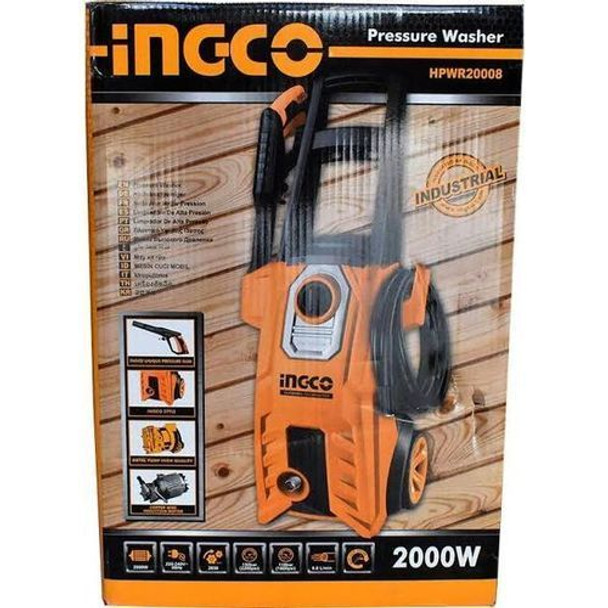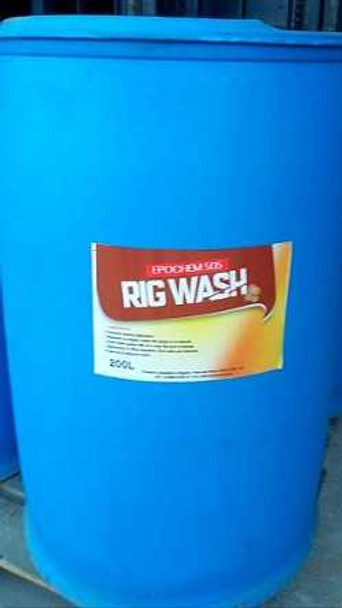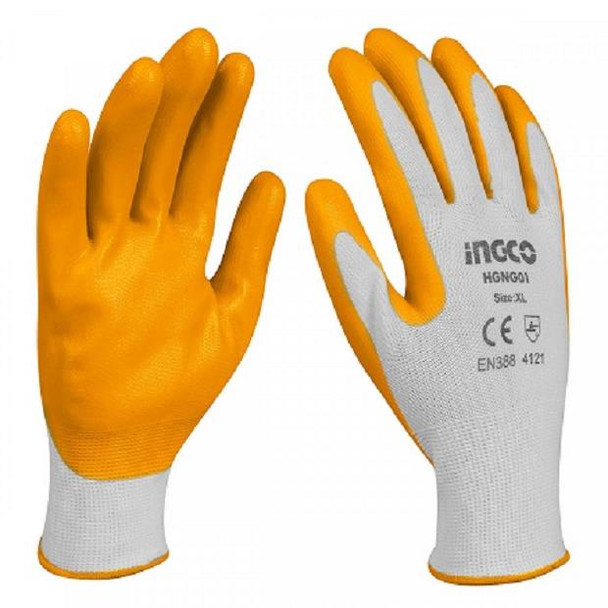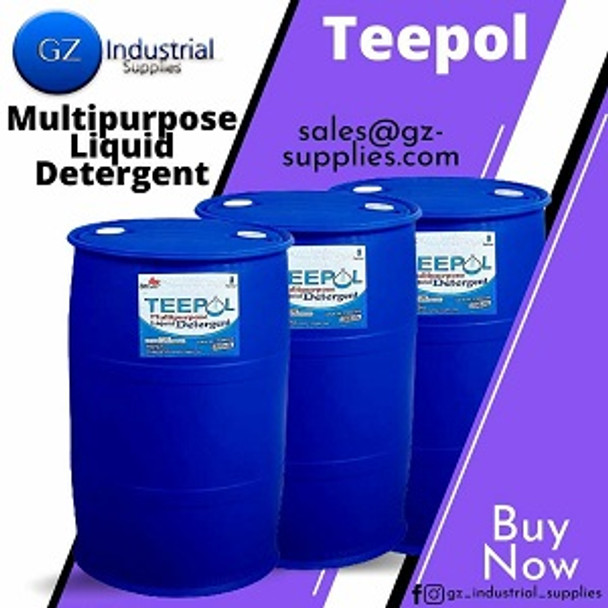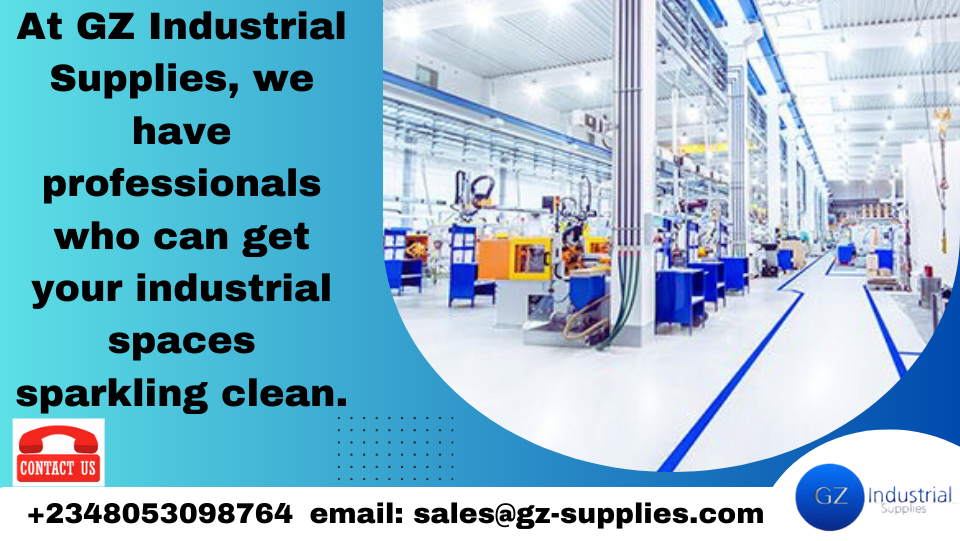Industrial Cleaning vs. Regular Cleaning: What's the Difference?
Industrial cleaning is crucial for maintaining the safety and efficiency of factories, warehouses, and other large-scale facilities. While regular cleaning typically involves routine tasks such as dusting, vacuuming, and sanitizing surfaces in homes or offices, industrial cleaning encompasses more complex, rigorous processes tailored to the unique challenges of industrial environments.
One significant difference between industrial cleaning and regular cleaning is the level of specialization and equipment required. Regular cleaning typically involves straightforward tasks such as dusting, mopping, vacuuming, and sanitizing common surfaces using household cleaning agents and basic equipment like brooms and vacuums. In contrast, industrial cleaning demands specialized techniques and advanced equipment to address the complex and hazardous environments found in industrial settings. For example, industrial cleaning may involve the use of heavy-duty machinery, high-pressure washers, chemical cleaners, and even robotic systems to clean large-scale machinery, production floors, and hard-to-reach areas. This level of specialization is essential to handle the heavy dirt, grime, grease, and potential chemical residues commonly present in industrial facilities, ensuring a thorough and effective cleaning that regular methods cannot achieve.
Understanding the key differences between these two types of cleaning is essential for ensuring that each space is maintained effectively and safely. This article explores the fundamental differences between industrial cleaning and regular cleaning, highlighting why specialized approaches are necessary for industrial settings.
Ingco High Pressure Washer 2000W
Understanding Regular and Industrial Cleaning
Industrial Cleaning
- Definition: Industrial cleaning involves the specialized personnel, methods, and special equipment needed to clean potentially hazardous areas of a facility. This highly specialized cleaning service is essential because a safe and clean industrial environment keeps you compliant with state and federal contamination laws and promotes a safe and healthy work environment, productivity, and product quality.
- Examples of Settings: Industrial cleaning is vital in environments like factories, warehouses, distribution centers, power plants, hospitals, and pharmaceutical production facilities. These settings often have complex and potentially hazardous environments that require expert cleaning to maintain safety and efficiency.
- Types of Contaminants: The contaminants in industrial settings are typically more severe and varied than those in regular environments. These can include heavy machinery oil, chemical residues, industrial waste, and other hazardous materials that require specialized handling and disposal.
Regular Cleaning
- Definition: Regular cleaning refers to the everyday cleaning tasks performed in residential, office, and small business settings. These tasks aim to maintain a clean and healthy environment through routine activities.
- Examples of Settings: Regular cleaning is common in homes, offices, retail stores, and small businesses where the primary goal is to manage everyday dirt, dust, and minor spills.
- Types of Contaminants: The contaminants typically found in these settings include dust, dirt, and everyday spills, which are generally easier to manage and require less specialized cleaning methods and products.
Regular and Industrial Cleaning Methods and Techniques
Industrial Cleaning Techniques
- Heavy-duty Equipment: Industrial cleaning often involves the use of powerful equipment such as pressure washers, industrial vacuums, and floor scrubbers. These machines are designed to handle large areas and tough contaminants efficiently.
- Specialized Methods: Some of the specialized industrial cleaning methods used in industrial settings include chemical cleaning, abrasive blasting, ultrasonic cleaning, and water jetting. Chemical cleaning involves the use of strong chemicals to break down stubborn residues and contaminants that regular cleaning agents cannot handle, making it particularly effective for removing grease, oil, and other persistent substances. Abrasive blasting utilizes materials like sand, glass beads, or other abrasives to remove surface contaminants, rust, and old coatings. This method is ideal for preparing surfaces for painting or other treatments by creating a clean, smooth surface. Ultrasonic cleaning employs high-frequency sound waves to clean intricate and delicate parts that are difficult to reach with traditional methods, making it highly effective for precision cleaning in industries such as electronics and medical device manufacturing. Lastly, water jetting or high-pressure cleaning uses high-pressure water jets to remove heavy dirt, grime, and build-up from surfaces and equipment. This method is especially useful for cleaning large industrial machinery, tanks, and pipelines, providing thorough and efficient cleaning without the need for harsh chemicals.
- Safety Protocols and Regulations: Given the hazardous nature of many industrial contaminants, strict safety protocols and regulations are followed. This includes the proper use of personal protective equipment (PPE) such as gloves, masks, and suits, as well as adherence to environmental regulations for the disposal of hazardous materials.
Epochem 505 Rig wash Industrial Cleaner

Regular Cleaning Techniques
- Household Tools: Regular cleaning typically involves the use of common household tools like brooms, mops, vacuum cleaners, and dusters. These tools are sufficient for managing the day-to-day cleaning needs of most homes and small businesses.
- Common Methods: The methods used in regular cleaning include dusting surfaces, sweeping and mopping floors, and disinfecting surfaces to maintain hygiene. These tasks are generally straightforward and can be performed by anyone with basic cleaning knowledge.
- Safety Measures: Basic safety measures, such as wearing gloves when using cleaning chemicals and ensuring good ventilation, are usually sufficient for regular cleaning tasks. The risks are generally lower compared to industrial cleaning environments.
Regular and Industrial Cleaning Agents and Supplies
Industrial Cleaning Supplies
- Types of Chemicals Used: Industrial cleaning often requires the use of strong chemicals such as degreasers, solvents, and acids that can effectively break down heavy contaminants. These chemicals are potent and need to be handled with care.
- Protective Gear: Due to the hazardous nature of many industrial cleaning chemicals, protective gear like gloves, masks, and full-body suits is essential to protect workers from exposure.
- Environmental Considerations: Disposal of industrial cleaning chemicals must be done in accordance with environmental regulations to prevent contamination. This often involves neutralizing the chemicals or using specialized disposal services.
Regular Cleaning Supplies
- Common Household Cleaners: Regular cleaning typically uses milder cleaning agents such as detergents, disinfectants, and all-purpose cleaners. These are designed for everyday use and are generally safe for most surfaces.
- Tools: Common tools used in regular cleaning include microfiber cloths, sponges, and brushes. These are sufficient for handling typical household dirt and grime.
- Eco-friendly Options: Many households are now opting for eco-friendly cleaning products that are biodegradable and free from harsh chemicals. These products are safer for the environment and reduce the risk of exposure to toxic substances.
Nitrile Gloves INGCO HGNG01
Efficient Regular and Industrial Cleaning Frequency and Scheduling
Industrial Cleaning
- Regular Maintenance Schedules: Industrial cleaning requires regular maintenance schedules to ensure that facilities remain safe and operational. This can include daily cleaning of workspaces, weekly deep cleaning of machinery, and monthly inspections to address any emerging issues.
- Impact of Operations on Cleaning Frequency: The frequency of industrial cleaning can be influenced by the nature of the operations. Continuous processes may require more frequent cleaning to prevent buildup, while batch processes may allow for less frequent but more intensive cleaning sessions.
Regular Cleaning
- Household Routines: Regular cleaning in homes typically follows a routine schedule with daily chores like making beds and washing dishes, and weekly tasks such as vacuuming, mopping, and dusting.
- Office Cleaning Schedules: In office settings, daily upkeep may involve emptying trash, wiping down surfaces, and cleaning restrooms, with periodic deep cleaning to address less frequent tasks like carpet cleaning and window washing.
Expertise and Training for Regular and Industrial Cleaning
Industrial Cleaning
- Need for Specialized Training and Certification: Industrial cleaning requires workers to have specialized training and, in some cases, certification. This training ensures that they understand how to use the heavy-duty equipment and hazardous chemicals safely and effectively. Certification programs often cover proper techniques, safety protocols, and environmental regulations.
- Understanding of Industrial Equipment and Hazards: Cleaning industrial environments requires a thorough understanding of the equipment used and the potential hazards. Workers must be knowledgeable about how to clean complex machinery without causing damage or creating safety risks. They also need to be aware of the specific hazards associated with different industrial contaminants and how to mitigate them.
Regular Cleaning
- Basic Training and Knowledge: Regular cleaning tasks generally require less specialized training. Basic knowledge of cleaning techniques and an understanding of how to use common cleaning tools and products are usually sufficient. Many people learn these skills through experience rather than formal training.
- Importance of Consistency and Attention to Detail: While the tasks may be simpler, regular cleaning still requires consistency and attention to detail to be effective. Regular routines help maintain cleanliness and hygiene, and attention to detail ensures that all areas are properly cleaned.
Epochem TEEPOL Multi-Purpose Detergent 200litres
Costs and Budgeting Tips for Regular and Industrial Cleaning
Industrial Cleaning Costs
- Factors Affecting Cost: The cost of industrial cleaning can vary widely depending on several factors, including the size of the facility, the type of industry, and the frequency of cleaning required. Larger facilities and those with more complex cleaning needs will naturally incur higher costs.
- Long-term Investments: Industrial cleaning often involves significant long-term investments in machinery and ongoing training for staff. Investing in high-quality equipment and training can improve efficiency and reduce the risk of accidents, ultimately saving money in the long run.
Regular Cleaning Costs
- Budget Considerations: For regular cleaning, budget considerations often involve deciding between DIY cleaning and hiring professional services. DIY cleaning can be more cost-effective, but professional services may provide a higher level of cleanliness and convenience.
- Cost-saving Tips: There are several ways to save on regular cleaning costs. Using efficient cleaning products that require less quantity per use, implementing preventive maintenance to reduce the need for deep cleaning, and adopting a regular cleaning schedule to prevent the buildup of dirt and grime can all help reduce expenses.
The Environmental Impact of Cleaning Practices
Industrial Cleaning
- Use of Hazardous Chemicals: Industrial cleaning often involves the use of strong chemicals that can pose environmental risks if not managed properly. These chemicals need to be handled with care to avoid contaminating air, water, and soil. Proper disposal and neutralization are crucial to minimize environmental damage.
- Regulations and Compliance: Industrial facilities must comply with stringent environmental regulations that govern the use and disposal of cleaning agents. Compliance with these regulations helps to ensure that the environmental impact is minimized and that the facility avoids legal issues and fines.
Regular Cleaning
- Eco-friendly Cleaning Products: There is a growing trend towards the use of eco-friendly cleaning products in regular cleaning. These products are biodegradable, non-toxic, and free from harsh chemicals, making them safer for the environment and for the people using them.
- Sustainable Practices: Adopting sustainable cleaning practices, such as reducing water and energy consumption, using reusable cleaning tools, and recycling waste, can significantly reduce the environmental impact of regular cleaning.
Contact Us Today For a Free Consultation and Quote <<<
Frequently Asked Questions
1. What is the main difference between industrial cleaning and regular cleaning?
Industrial cleaning involves specialized techniques, equipment, and chemicals to handle heavy-duty contaminants in large-scale facilities, while regular cleaning focuses on maintaining everyday cleanliness in homes and offices using standard tools and products.
2. Why is industrial cleaning more expensive than regular cleaning?
Industrial cleaning is more expensive due to the need for specialized equipment, trained personnel, and compliance with strict safety and environmental regulations. The scale and complexity of industrial facilities also contribute to higher costs.
3. Can regular cleaning products be used for industrial cleaning?
Regular cleaning products are generally not suitable for industrial cleaning due to the different types and levels of contaminants present in industrial environments. Industrial cleaning requires stronger, specialized chemicals and equipment designed for heavy-duty tasks.
4. How often should industrial facilities be cleaned?
The frequency of industrial cleaning depends on the specific operations and regulatory requirements of the facility. Some areas may require daily cleaning, while others can be cleaned weekly or monthly. Regular maintenance schedules are crucial to ensure safety and efficiency.
5. What are the environmental impacts of industrial cleaning?
Industrial cleaning can have significant environmental impacts due to the use of strong chemicals and the generation of hazardous waste. Proper waste management and the use of green cleaning technologies can help mitigate these impacts.
Related Articles
Top 5 Benefits of Professional Industrial Cleaning Services
Understanding the Importance of Cleanliness in Industrial Environments
"Industrial Cleaning 101: Key Principles and Best Practices
Conclusion
Understanding the differences between industrial cleaning and regular cleaning is essential for choosing the right methods and products to ensure effective results. Industrial cleaning requires specialized techniques, equipment, and compliance with regulations, while regular cleaning focuses on maintaining everyday cleanliness with standard tools and products.
Whether you need industrial or regular cleaning services, it is important to select the appropriate approach to maintain a safe, clean, and healthy environment. Industrial settings demand a higher level of expertise and specialized equipment, whereas regular environments benefit from consistent routines and eco-friendly products.
For more information and to find the right cleaning products for your needs, visit GZ Industrial Supplies. Explore our range of professional cleaning supplies tailored for both industrial and regular cleaning requirements.
Contact usNow!

